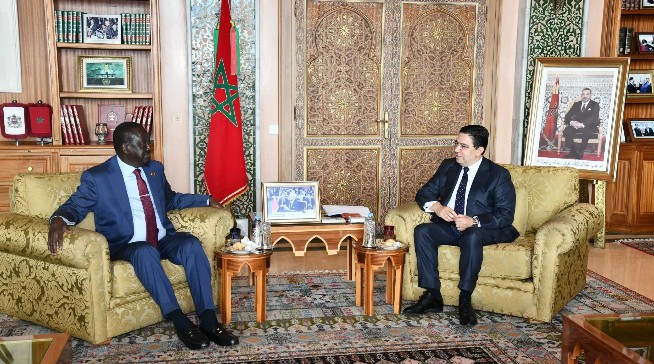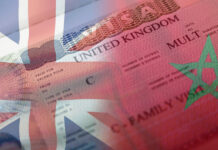Moroccan Foreign Minister Nasser Bourita welcomed Kenya’s Prime Cabinet Secretary Musalia Mudavadi to Rabat on Monday, in a meeting that underscored the deepening ties between Morocco and Kenya. Mudavadi, who also oversees foreign affairs and diaspora relations, arrived as part of a diplomatic push to strengthen collaboration between the two nations—an effort that has gathered momentum since William Ruto assumed the Kenyan presidency in 2022.
During their talks, both officials highlighted the positive momentum shaping their bilateral relationship. The meeting concluded with the signing of several strategic agreements spanning key sectors. In a move to solidify long-term cooperation, the two sides also agreed to establish a Joint Commission for Cooperation, which will provide a legal framework to support future economic, cultural, and social initiatives.
On the global stage, the two governments reiterated their shared commitment to align their positions in major diplomatic forums. One of the central topics of discussion was the dispute over Moroccan Sahara. Kenya reaffirmed its backing of Morocco’s autonomy plan, which it described as the only viable and realistic path toward a lasting resolution to the long-standing regional conflict.
In a joint statement released after the talks, Kenya expressed its willingness to deepen partnerships with nations that share this perspective and welcomed the growing international consensus around the Moroccan proposal. Kenyan Prime Cabinet Secretary Mudavadi also praised King Mohammed VI for his leadership in promoting this approach.
The ministers emphasized the importance of the United Nations’ role in advancing the political process, voicing their support for Security Council Resolution 2756 adopted earlier this year. Morocco expressed gratitude for Kenya’s steadfast position, particularly its recognition of the kingdom’s efforts in supporting the UN Secretary-General and his envoy in facilitating negotiations.
Mudavadi also spotlighted King Mohammed VI’s broader initiatives to spur development across the African continent. He pointed to the Royal Initiative for the Sahel, which seeks to give landlocked countries in the region access to the Atlantic Ocean, and commended Morocco’s wider strategy to turn Africa’s Atlantic coast into a structured zone for cooperation and dialogue.





